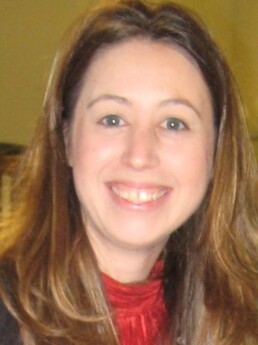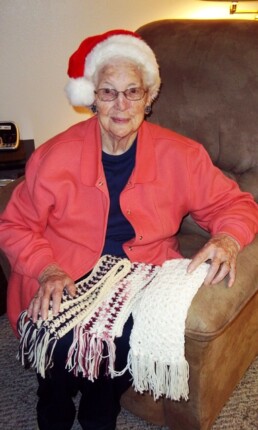Annual Conference for People with Dementia and Their Caregivers Set for March 19
The annual “Meeting of the Minds Dementia Conference” will be held March 19, 2016, from 7:30 a.m. to 4:30 p.m. at the Saint Paul RiverCentre to inform and support people with dementia along with their family, friends and professional caregivers.
Ecumen CIO Larry Jorgensen Named to National Commission on Aging Services Technology
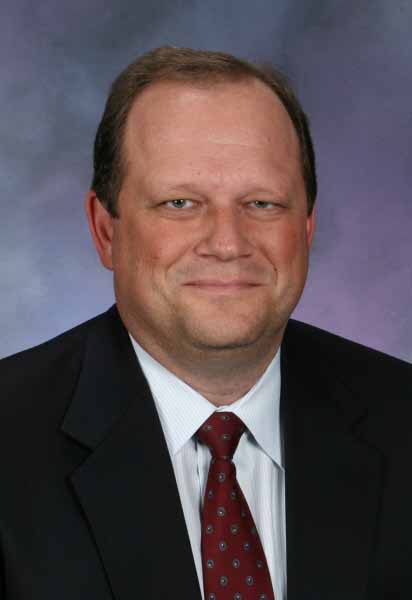 Larry Jorgensen, Vice President and Chief Information Officer at Ecumen, has been named a Commissioner for The LeadingAge Center for Aging Services Technologies (CAST).
Larry Jorgensen, Vice President and Chief Information Officer at Ecumen, has been named a Commissioner for The LeadingAge Center for Aging Services Technologies (CAST).
A Look at Alzheimer’s Through the Eyes of a Young Doctor
What does a doctor do when she’s treating patients with a disease like Alzheimer’s that has no cure? Dr. Ariel Green, a Johns Hopkins geriatrician, offers a profound answer to that question in this first-person account in the Washington Post. Dr. Green realized she knew the answer before she ever went to medical school. Doctoring is a lot more than practicing medicine.
Ecumen Detroit Lakes Receives Grant to Advance Its Dementia-Friendly Work
Ecumen Detroit Lakes is among 12 Minnesota organizations receiving grants through ACT on Alzheimer’s to help create more dementia-friendly communities.
ACT on Alzheimer’s is a volunteer-driven, statewide collaboration preparing Minnesota for the personal, social and budgetary impacts of Alzheimer’s disease. The Alzheimer’s Association estimates there are 88,000 Minnesotans age 65 and older with the disease and many thousands more with other dementias.
“As the population of Minnesota ages, it’s becoming increasingly important to build support systems for people with dementia and Alzheimer’s,” said Olivia Mastry, executive lead for ACT on Alzheimer’s and also an Ecumen board member. “Some of the most exciting innovations will emerge from this community work.
“Creating dementia-friendly communities means that caregivers are supported and people with dementia are able to live in the community and stay out of institutional care longer,” Mastry said. “That helps everyone – families and taxpayers who pay for institutional care, employers who have workers trying to balance all the demands of caregiving, and the individuals themselves.”
Janet Green, executive director of Ecumen Detroit Lakes, said: “We have a long history of supporting community members with Alzheimer’s and their caregivers, and this generous grant gives us the ability to even further enhance our programs. What a wonderful recognition in our 50th anniversary year serving the Detroit Lakes community.”
Green said Ecumen Detroit Lakes has had Alzheimer’s support groups for more than 15 years, and started its memory care community more than 20 years ago. “We have a strong commitment to this work and have been in the forefront dealing with dementia care,” Green said. “This grant will allow us to take our work to an even higher level.”
Ecumen Detroit Lakes was part of the initial round of grant recipients and initially will receive $5,800 to implement support programs. The amount could grow to $18,000 based on the success of the programs. For a list of communities receiving grants go to this link.
Ecumen Detroit Lakes’ grant is funded through Blue Plus (an HMO affiliate of Blue Cross and Blue Shield of Minnesota), the Medica Foundation and Greater Twin Cities United Way.
More than 60 organizations are partners in ACT on Alzheimer’s. More information is available at www.actonalz.org
Alzheimer's & Dementia Care: "Listening to Elderly Cuts Use of Costly Medications," Ecumen Awakenings Featured in Minneapolis Star Tribune
So many people across Ecumen have made Ecumen Awakenings possible and are contributing to the program's learnings and growth. It is innovation that empowers and honors those with Alzheimer's and other types of dementia while underscoring our mission and vision. Saturday's front-page article in the Minneapolis Star Tribune features a long story on this great work. Thank you to everyone who makes Awakenings possible and to our colleagues and customers at Ecumen Parmly LifePointes who opened their lives and shared their experiences with the newspaper.
You can read the article by clicking here: Listening to elderly cuts use of costly medications
Or cut and paste the following url into your browser: http://www.startribune.com/lifestyle/health/236822161.html.
About Ecumen Awakenings:
Ecumen Awakenings™ is working to transform America’s culture of care for people living with Alzheimer’s and related dementias. Awakenings improves lives and care experiences while achieving the optimum benefits and balance of non-pharmacological and biomedical approaches. Offered by leading non-profit Ecumen, Awakenings is an empowering, collaborative approach to care that honors one’s individuality and abilities while enriching lives.
This collaboration of the person, care professionals, physicians, pharmacists and loved ones often leads to reduction or elimination of antipsychotic medication use and prevents many people from moving to antipsychotics, which carry significant health risks for older adults. “Awakenings” occur as behavioral symptoms decrease and one’s abilities and personality emerge.
Revitalizing Memory Care at Ecumen Pathstone Living
The Memory Care team at Ecumen Pathstone Living recently decided it was time for a change. Inspired by a training video about state-of-the-art thinking on how to care for people with Alzheimer’s and other forms of dementia, they looked around the memory care unit and saw that something important was missing.
The 21-room facility, built in 2006, had a clean, elegant look. What it lacked was the ambiance of home. 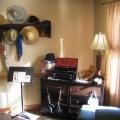
So for three days, the team did a complete review of the program, the residents’ individual interests and the physical setting. They set out to create a space where residents could directly engage with things that interest them in a space that feels like home.
The team cleaned, sorted and organized. They identified “themes” based on residents’ interests and analyzed the space for ways to improve engagement.
One thematic approach was to bring back the past, which can be very therapeutic for dementia patients. Now there is a “Reminiscence” area which will be changed out throughout the year to include things like seasonal décor, wedding dresses, farming, baseball, fur coats, jewelry, etc. Every article in the area is there for engagement--to be handled, tinkered with and enjoyed.
There is also an “Old Mankato” area with historic photos on display and a wall where residents have their own personalized baskets with items from home special to them. And in the “Nursery” area many residents like rocking and cradling dolls, which encourages the feeling of caring for others.
Another theme was to bring the outdoors inside with a “Garden/Sensory” area. In a sunroom near the front of the facility, flowers, lettuce, radishes, basil and parsley are now growing in raised-bed planters. In this area, residents can hear the sounds of rain drops, wind chimes, traffic and children playing.
Also, there is a “Nature/Relaxation” area with comfortable seating around a large fish tank and a “TV/Game/Music” area with a recreational theme, where families can gather.
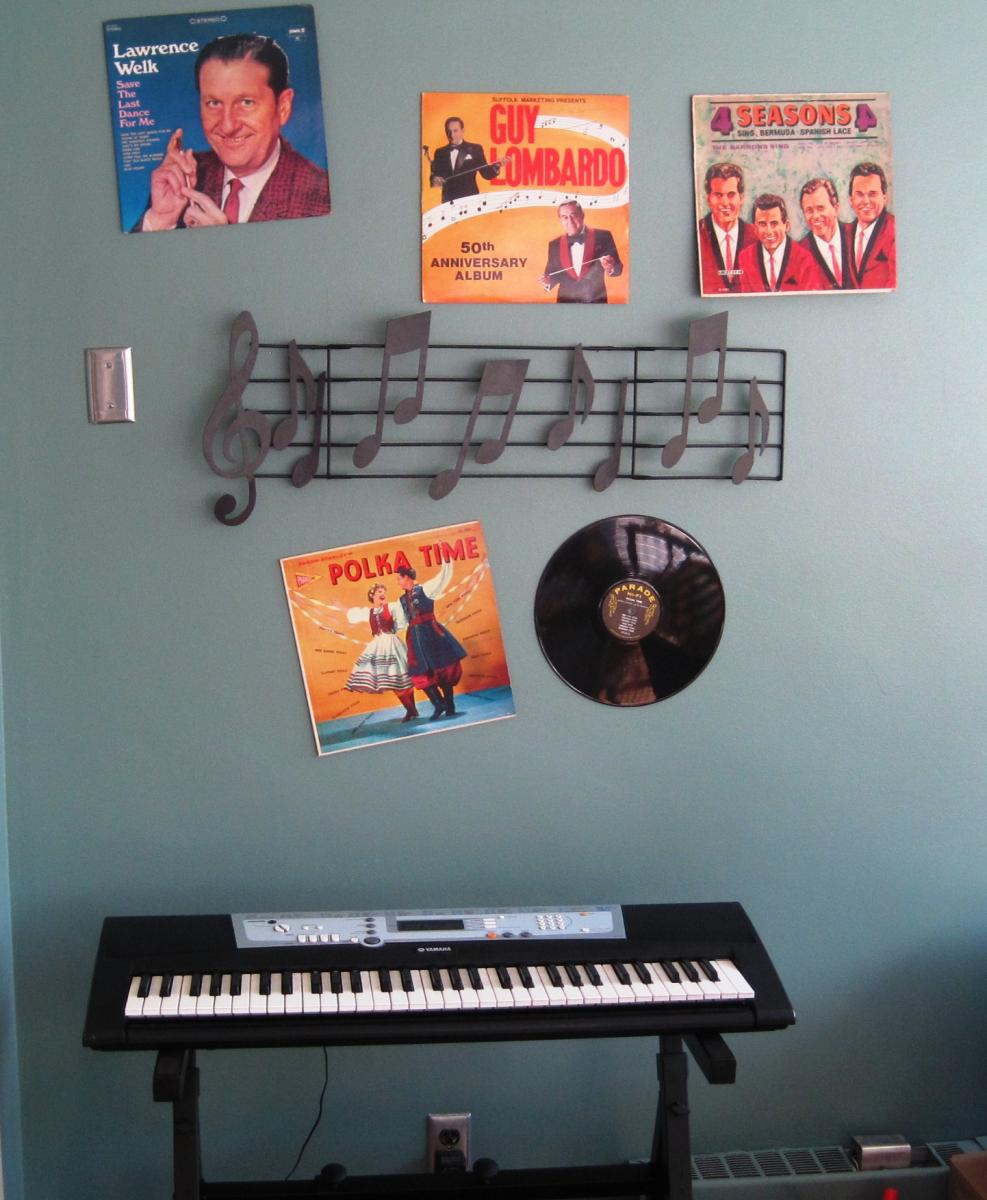 “There is a new energy around our neighborhood,” said Angela Stevens, RN, the assisted living manager. “Residents are much more engaged. Plus, this was a great experience for staff. We saw what a difference we could make in a short time just by looking at the situation differently. It has been very rewarding to see the results.”
“There is a new energy around our neighborhood,” said Angela Stevens, RN, the assisted living manager. “Residents are much more engaged. Plus, this was a great experience for staff. We saw what a difference we could make in a short time just by looking at the situation differently. It has been very rewarding to see the results.”
And family members agree. Lois Jaeger, whose mother lives at Ecumen Pathstone Living, sent this appreciative note:
“We miss them – our loved ones suffering from dementia or Alzheimer’s. No, they haven’t passed away, but so much of the essence of who they are is slipping away from us. How wonderful it is to have people and a program dedicated to drawing out bits and pieces of the ones we love so dearly.
“It has been exciting to learn about and watch as ‘Awakenings’ develops physically and programmatically at Pathstone Way. What fun to see the activity areas for gardening, costuming, ‘child’ care, etc. take shape. How gratifying to see the personal basket for my mother proudly displayed with evidence of who she really is. The ‘biography’ there, compiled by the staff from bits of information I supplied, is a lovely tribute to her and acknowledges the real person she has been and still is.
“But these tools would not mean as much as they do without the commitment and enthusiasm of the staff to utilize them. Residents are involved in projects that are designed to make them feel productive and contributing – just as they were before their illness. Smiles and laughter are coaxed out as sparks of humor and imagination are ignited by a costume or a picture. These things might seem small to others, but to those of us who love to see reflections of the person we remember they are enormous.
“My mother is surrounded by a staff that not only cares for her physical welfare but also understands and appreciates that locked inside a failing memory there is a history of a life spent in loving and giving. I am so thankful!”
Ecumen Prairie Lodge Expands Its Unique Approach To Enhanced Memory Care
Ecumen Prairie Lodge is doubling the size of its nationally known enhanced memory care program to meet a growing demand for its unique approach to dealing with the most challenging cases of dementia.
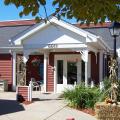 Before the expansion, one of the three Ecumen Prairie Lodge neighborhoods in Brooklyn Center housed 14 residents in enhanced memory care, along with 15 residents in traditional memory care. In April, Ecumen management decided to convert the entire building to enhanced memory care and transition the traditional memory care residents to another building.
Before the expansion, one of the three Ecumen Prairie Lodge neighborhoods in Brooklyn Center housed 14 residents in enhanced memory care, along with 15 residents in traditional memory care. In April, Ecumen management decided to convert the entire building to enhanced memory care and transition the traditional memory care residents to another building.
“The decision to expand is need-driven,” said Janelle Meyer, housing director at Ecumen Prairie Lodge. “Our success caring for residents with more challenging behaviors sets us apart.”
The expanded program for enhanced memory care now has newly remodeled space with increased security, newly painted walls, new flooring and a refurbished courtyard area. New memory stations have been added throughout the building to encourage resident interaction. Also, there will be nursing coverage 24 hours a day, seven days a week. The new program will be fully operational October 31, 2013.
Ecumen Prairie Lodge is one of only a few providers in the country who do enhanced memory care for people with the more complicated diagnoses, which include frontotemporal lobe and Lewy body dementia. Only two other providers in Minnesota care for residents with especially challenging behaviors.
The Ecumen Prairie Lodge enhanced memory care program was started five years ago and has been in the national spotlight ever since. It relies much more on highly personalized staff interactions and various engagement therapies than on the use of psychotropic medications.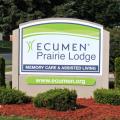
“Our success comes from giving residents more one-to-one staff attention,” Janelle said. “The staff really gets to know each person individually, and that knowledge helps guide residents through difficult situations.”
Also, Janelle said new staff goes through intensive training and all staff has continuing training. “The staff is constantly sharing information with one another about what works and doesn’t work with each resident, so that we are always adding to our toolbox and building on our knowledge,” she said.
“The staff here is highly trained and committed to caring for residents,” Janelle said. “Even though we handle the most difficult cases, we have very low staff turnover—about half the industry average.
Stevens Square Foundation Awards Ecumen $25,000 Grant To Expand Awakenings
A Minneapolis foundation with a strong commitment to supporting innovation in aging services awarded Ecumen $25,000 to expand Awakenings. See the full story here on our Awakenings.org blog.
Ecumen Awakenings Insight: The Crucial Difference Between Delirium and Dementia and Why A Care Team Must Fully Explore It
Ecumen Awakenings Insight and personal story from Shelley Matthes on the crucial difference between delirium and dementia.
World Alzheimer Report, New American Psychiatric Association Statement Show Need for Different Kind of Alzheimer's Care
World Alzheimer Report and insight from American Psychiatric Association Illustrate Need for Ecumen Awakenings-type care approaches.



